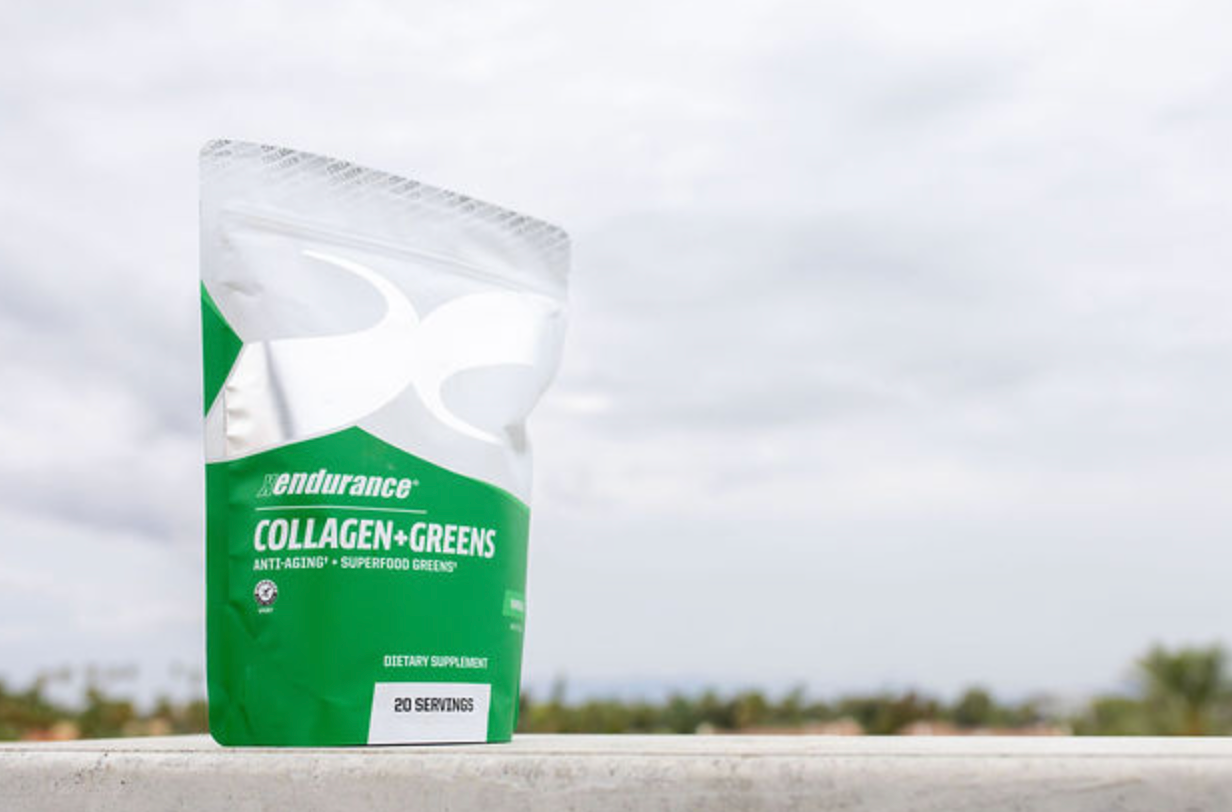Every day, we are inundated with alarming headlines about the rising prevalence of heart disease and sudden cardiac events. Stories of seemingly healthy individuals succumbing to heart issues dominate the news, prompting us to question the adequacy of our own health routines. Despite maintaining a balanced diet and staying active, the unsettling reports make us wonder if there's more we can do to safeguard our hearts. Could there be additional measures or supplements that go beyond exercise and nutrition, offering a crucial edge in protecting our cardiovascular health?
Maintaining heart health is crucial for overall well-being. While a balanced diet, regular exercise, and a healthy lifestyle form the foundation of cardiovascular health, supplements can play a significant role in supporting heart function and preventing disease. Here are the top five heart health supplements that are widely recommended by experts for their proven benefits:
1. Omega-3 Fatty Acids
Omega-3 fatty acids are essential fats found primarily in fish oil and certain plant oils. They are known for their potent anti-inflammatory properties and their ability to support heart health in several ways. Omega-3s, particularly eicosapentaenoic acid (EPA) and docosahexaenoic acid (DHA), help to lower triglycerides, reduce blood pressure, and prevent the formation of harmful blood clots. They also contribute to reducing the risk of arrhythmias (irregular heartbeats) and slowing the buildup of plaque in the arteries.
A daily intake of 1,000 to 2,000 mg of combined EPA and DHA is recommended for heart health.
Triglyceride omegas are known to be most bioavailable and more similar to fish compared to Ester Ethyl fish oils so check your label.
For those who prefer plant-based options, alpha-linolenic acid (ALA) from flaxseed oil can be beneficial, though it may be less potent than marine sources.
2. Coenzyme Q10 (CoQ10)
Coenzyme Q10, also known as CoQ10, is a naturally occurring antioxidant that plays a critical role in energy production within cells. It is particularly concentrated in the heart, where it helps in maintaining the heart's pumping ability. CoQ10 levels tend to decrease with age and are often lower in people with heart disease.
Supplementing with CoQ10 has been shown to improve heart function, reduce symptoms of congestive heart failure, and enhance the outcomes in patients undergoing heart surgery. It may also help reduce the oxidative stress associated with heart disease. Typical dosages range from 100 to 200 mg per day, depending on individual health needs.
3. Magnesium
Magnesium is a vital mineral involved in over 300 biochemical reactions in the body, including those that regulate heart rhythm and blood pressure. Adequate magnesium intake is associated with a lower risk of hypertension (high blood pressure) and can help prevent arterial stiffness, thus supporting healthy blood flow and reducing the risk of cardiovascular events.
Some sources estimate that up to 80 percent of Americans are low in this essential mineral.
For heart health, a daily magnesium intake of 310 to 420 mg is recommended, depending on age and sex and physical activity. Magnesium supplements come in various forms, such as magnesium citrate and magnesium oxide, which are commonly used to support cardiovascular health.

4. Vitamin D
Vitamin D is best known for its role in bone health, but it also has significant benefits for the cardiovascular system. Adequate levels of vitamin D help to regulate blood pressure and reduce inflammation, both of which are critical for heart health. Low levels of vitamin D have been linked to an increased risk of heart attacks, strokes, and other cardiovascular diseases.
Researchers have shown promising findings on vitamin D supplements and their potential to enhance heart function in patients suffering from chronic heart failure.
The recommended daily allowance of vitamin D varies, but many experts suggest a daily intake of 1,000 to 2,000 IU to ensure optimal heart health, particularly in individuals at risk for deficiency due to limited sun exposure or dietary intake.
5. Niacin (Vitamin B3)
Niacin, also known as vitamin B3, is a vital nutrient that helps convert food into energy and supports the function of the digestive system, skin, and nerves. Its role in heart health is primarily due to its ability to lower LDL (bad) cholesterol and triglycerides while raising HDL (good) cholesterol levels.
Niacin has been used for decades to treat hyperlipidemia (high levels of fats in the blood). It can also help reduce the risk of atherosclerosis, the buildup of plaques in the arteries that can lead to heart attacks and strokes. However, high doses of niacin can cause side effects, such as flushing, and should be taken under medical supervision.
The recommended dosage for heart health benefits typically ranges from 500 mg to 2,000 mg per day, depending on individual health needs.
Why Exercise and a Balanced Diet Are Essential for Heart Health
We can’t leave out the importance of exercise and a balanced diet for heart health. These two pillars of a healthy lifestyle play a crucial role in preventing cardiovascular diseases, which remain the leading cause of death worldwide. Understanding how physical activity and proper nutrition contribute to heart health helps underscore why they should be integral components of our daily routines.
How Important Is Exercise For Heart Health?
Regular physical activity is one of the most effective ways to protect and enhance heart health. Exercise strengthens the heart muscle, improves blood circulation, and increases the efficiency of the cardiovascular system. Here are some key ways exercise benefits heart health:
- Improves Cardiovascular Fitness: Aerobic exercises, such as walking, running, swimming, and cycling, elevate the heart rate and enhance cardiovascular endurance. This improvement in heart function enables the heart to pump blood more efficiently,
- Lowers Blood Pressure: Hypertension, or high blood pressure, is a significant risk factor for heart disease. Regular physical activity helps lower blood pressure by promoting better blood vessel function and reducing the force of blood against the artery walls. This reduction in blood pressure lessens the strain on the heart and arteries, decreasing the risk of heart attacks and strokes.
- Reduces Cholesterol Levels: Exercise aids in lowering LDL (bad) cholesterol levels and increasing HDL (good) cholesterol levels. High levels of LDL cholesterol contribute to plaque buildup in the arteries, leading to atherosclerosis and increasing the risk of heart disease. By improving cholesterol profiles, exercise helps maintain clear and flexible arteries, enhancing blood flow and reducing the risk of cardiovascular complications.
- Manages Weight: Physical activity is a crucial component of weight management. Being overweight or obese is a major risk factor for heart disease, as it is often associated with elevated blood pressure, high cholesterol, and diabetes. Regular exercise helps burn calories, reduce body fat, and maintain a healthy weight, all of which are critical for heart health.
- Reduces Inflammation: Chronic inflammation is a contributor to the development of heart disease. Exercise has anti-inflammatory effects that help reduce the levels of inflammation in the body. This reduction in inflammation helps protect the arteries and reduces the risk of atherosclerosis and other cardiovascular conditions.
The Role Of A Balanced Diet In Heart Health
Alongside exercise, a balanced diet is fundamental to maintaining and improving heart health. The food choices we make can significantly impact our cardiovascular system in the following ways.
-
Provides Essential Nutrients: A diet rich in fruits, vegetables, whole grains, lean
proteins, and healthy fats supplies the essential nutrients that support heart health. These
nutrients include antioxidants, fiber, vitamins, and minerals that help protect and reduce
cholesterol levels, and improve overall cardiovascular function. - Reduces Risk of Heart Disease: Diets that are high in saturated fats, trans fats, and processed sugars contribute to the development of heart disease by raising cholesterol levels and promoting inflammation. Conversely, a heart-healthy diet that emphasizes unsaturated fats, such as those found in olive oil and nuts, and incorporates a variety of nutrient-dense foods, can reduce the risk of heart disease and promote longevity.
- Controls Blood Pressure: Consuming a diet low in sodium and rich in potassium helps regulate blood pressure. Foods such as leafy greens, bananas, and avocados are excellent sources of potassium, which helps balance sodium levels in the body and eases tension in the blood vessels. This dietary approach can significantly lower blood pressure and reduce the risk of hypertension.
- Manages Blood Sugar Levels: A balanced diet that limits refined carbohydrates and includes high-fiber foods helps manage blood sugar levels. Stable blood sugar levels are crucial for preventing insulin resistance and type 2 diabetes, both of which are risk factors for heart disease. Incorporating whole grains, legumes, and vegetables into meals helps maintain healthy blood sugar levels and supports heart health.
- Promotes Healthy Weight: Like exercise, a balanced diet is essential for maintaining a healthy weight. Consuming nutrient-dense, low-calorie foods helps prevent weight gain and reduces the burden on the heart. By avoiding excessive calorie intake and focusing on nutritious foods, individuals can maintain a healthy weight and lower their risk of cardiovascular diseases.
Optimizing Heart Health: How Supplements Complement Diet and Exercise
Incorporating these 5 supplements into your daily regimen can provide substantial support for your cardiovascular health. However, it’s essential to approach supplementation with caution and ideally under the guidance of a healthcare provider, particularly if you have existing health conditions or are taking medications. Each of these supplements offers unique benefits, and their effectiveness can be maximized when combined with a heart-healthy lifestyle.
For optimal heart health, focus on a diet rich in fruits, vegetables, whole grains, and healthy fats, engage in regular physical activity, and consider these supplements to provide an additional boost to your cardiovascular well-being.









Leave a comment
This site is protected by hCaptcha and the hCaptcha Privacy Policy and Terms of Service apply.